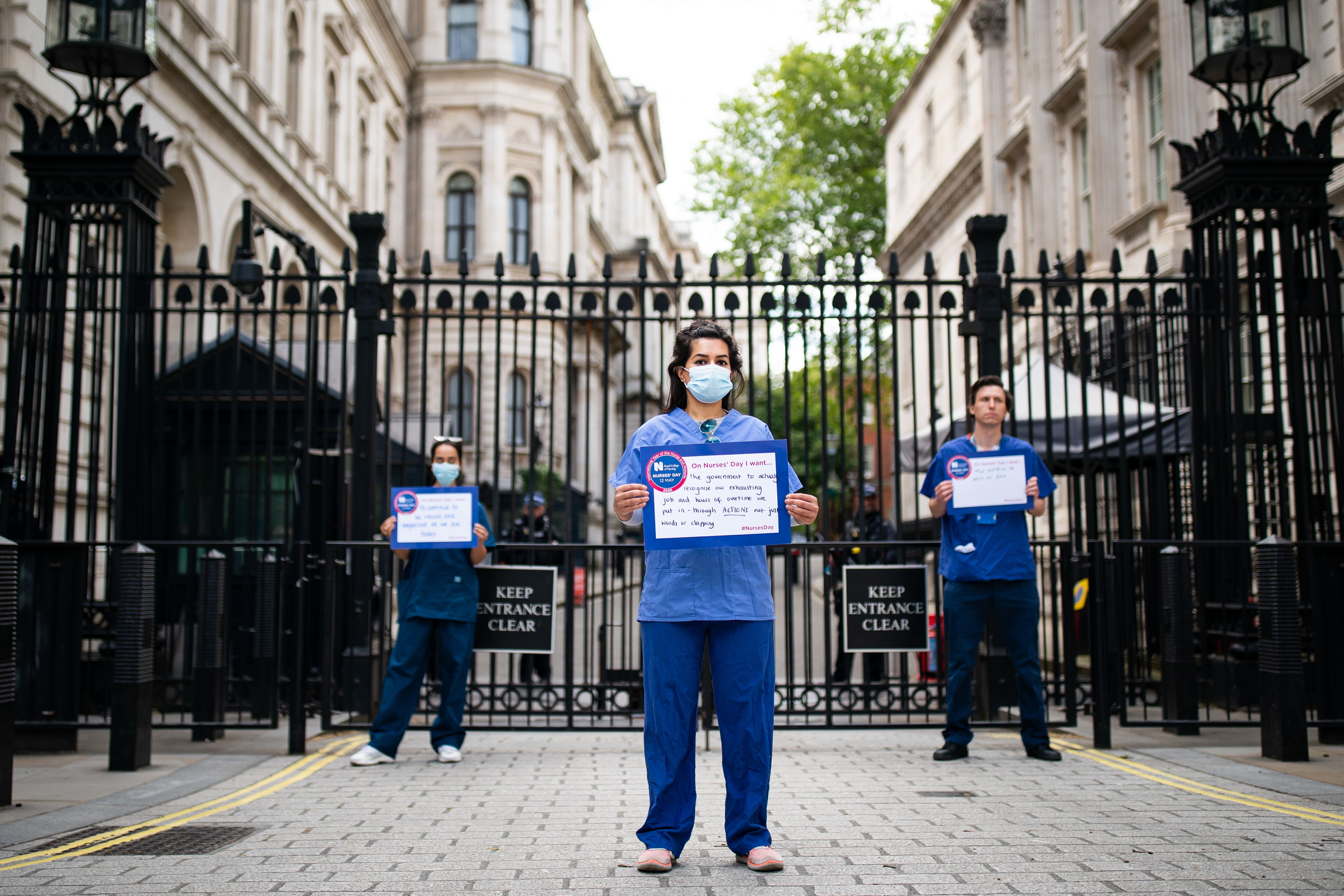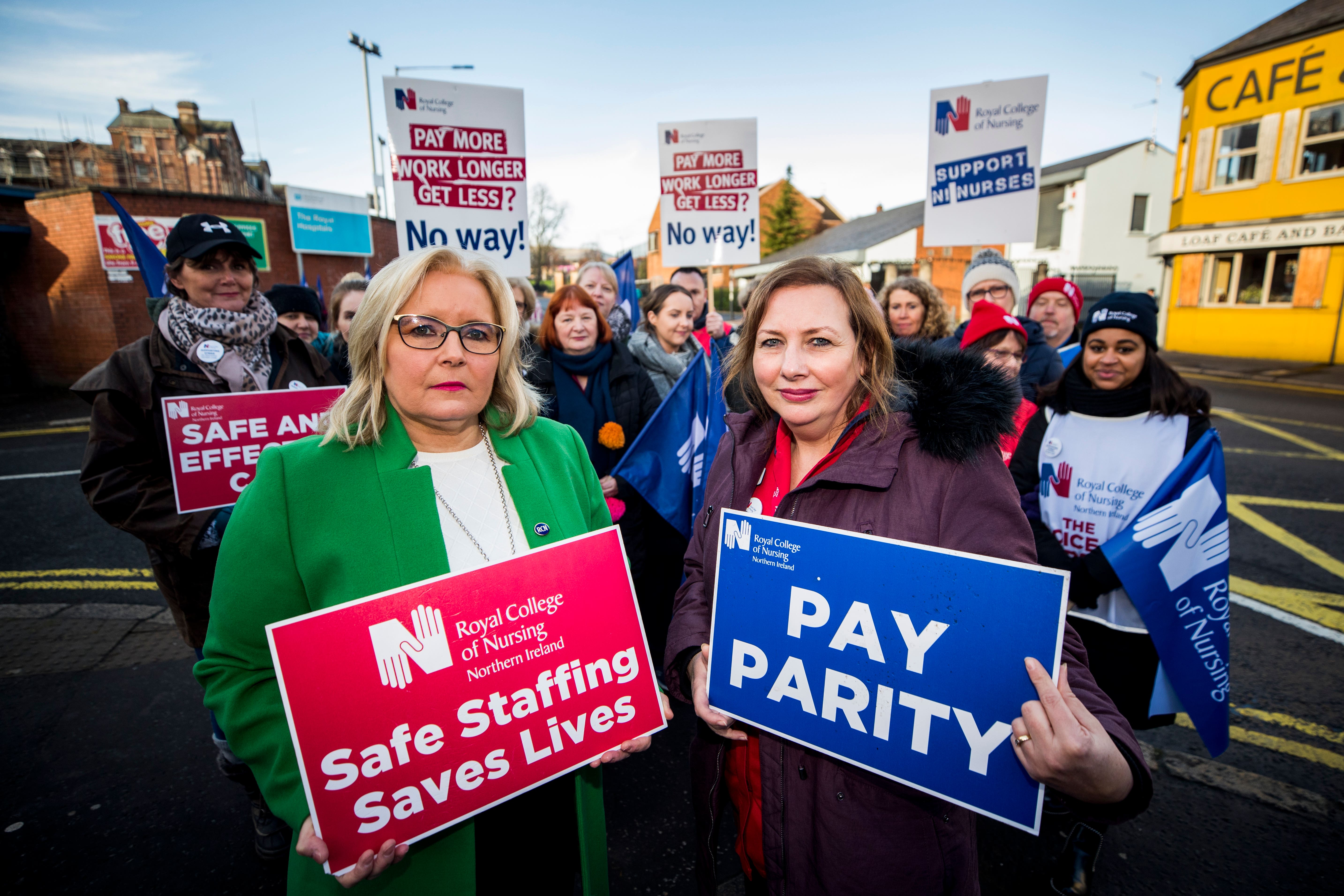
Nurses have said they fear not having enough money to feed their families or pay their rent, as unprecedented strike action was given the go-ahead.
NHS workers who voted in favour of the walkout told The Independent said nurses are being forced out of the profession over pay and working conditions.
One said she had recently handed her notice in over understaffing, while another said nurses could not keep doing their jobs if they cannot pay for essentials.

It came as nurses across the UK voted in favour of going on strike in the first nationwide statutory ballot in the 106-history of the Royal College of Nursing (RCN).
Have you been affected by this story? Contact zoe.tidman@independent.co.uk
It announced the results on Wednesday, while other unions - including Unison and Unite - were still collecting responses.
Cathy Murphy, a 39-year-old from Southampton, said she had voted in favour of strike action, with pay an “important factor” in the decision.
“I have noticed many colleagues increasingly leaving the service because pay is not keeping up with living costs,” she said.
Most full-time NHS nurses were offered a basic pay rise of 4 per cent this year, criticised by the RCN as a real-term pay cut as living costs soared.
Inflation is currently at 10 per cent, according to the latest official estimate.

Ms Murphy said: “My hugely experienced colleague recently left because she discovered Aldi where paying more than she was earning in the NHS. She loves that the hours are more sociable, and she no longer feels the stress levels she was experiencing in the NHS.
“Those left behind are increasingly burnt out, tired and trying to cope with limited staffing levels.
“Nurses are not angels, and although we love our work, we cannot continue to do it if we can’t feed our families or keep the lights on.”
A night nurse from Dorset, who wanted to remain anonymous, said she had voted for strike action and recently handed her notice in.
“Staffing levels are critical now. There are seven nurses who have handed in their notice in the last two months. It’s just horrific,” she told The Independent.
“Because staff have left, it’s just even more pressure on the existing staff. It is just unsafe. I personally don’t feel supported at work.”
She worried, however, strike action had come too late, with “a lot of experienced nurses” already having left or planning on doing so over conditions and pay.

In Northamptonshire, Matt Adams said he had never seen such appetite for strike action in the nursing profession during his two decades in the NHS.
“Fifteen years ago, the idea of even advocating a strike would be so alien,” the NHS nurse endoscopist said. This time, he said people had spent months asking when the ballot would take place.
“I have colleagues I know have struggled, have used food banks. They’ve cancelled all their luxuries. There is nothing else they can do,” the 37-year-old told The Independent.
“These aren’t people living it large and getting into debt in a silly way. These are people just trying to keep above water.”
Mr Adams said he used to hear stories from colleagues about sunny holidays after annual leave. Now, they are telling him they have spent their time off working extra shifts to pay their bills and afford energy-saving measures around the house.
He said the nursing profession needs to become “desirable again” - or at least to a point where nurses don’t have to worry about paying rent or bills while doing their job.
Mr Adams is a member of Unison, which is still collecting ballots. He already knows what he is going to do. “I’m going to vote to strike. But it’s not just about the money. It’s everything else involved,” he said.
After the RCN vote for strike action was announced, general secretary Pat Cullen, said: “Our members will no longer tolerate a financial knife-edge at home and a raw deal at work.”

Many of the biggest hospitals in England will see strike action by RCN members but others narrowly missed the legal turnout thresholds to qualify for action. All NHS employers in Northern Ireland and Scotland will be included and all bar one in Wales met the relevant legal thresholds.
Steve Barclay, the health secretary, said the news was “disappointing”. He said more than one million NHS workers have received a pay rise of at least £1,400 this year on top of a 3 per cent rise last year, and 30,000 out of the 50,000 more nurses promised by 2024 had been recruited.
“But union demands for a 17.6 per cent pay settlement are around three times what millions of people outside the public sector will typically receive and simply aren’t reasonable or affordable. Labour have also refused to back this,” the health secretary said.
“Regrettably, this action will mean some patients will have their treatment delayed. My priority is to keep patients safe during any strikes, minimise disruption and ensure emergency services continue to operate.”
NHS trusts are likely to cancel planned surgeries but maintain emergency care during strikes. Health leaders have said they are planning for “bank holiday” style staffing levels.







